In the whirlwind of modern life, the concept of prepping—preparing for unexpected events and potential disasters—often faces unwarranted ridicule and dismissal. But are these dismissive attitudes justified? Is Prepping Stupid?
Let’s delve into the world of the prepping community, debunk its myths, understand its merits, and highlight common mistakes even seasoned preppers sometimes make.
Why Do People Think Prepping Is Pointless? Is Prepping Stupid?
Preppers are frequently portrayed as fringe radicals, obsessively hoarding canned goods in anticipation of a nuclear war and cataclysmic zombie apocalypse.
However, we preppers are pragmatic individuals, preparing for various realistic situations where basic supplies may be inaccessible. Blackouts, water contamination, or even blizzards are circumstances that might necessitate a certain level of preparedness.
Over-emphasis on Extreme Scenarios
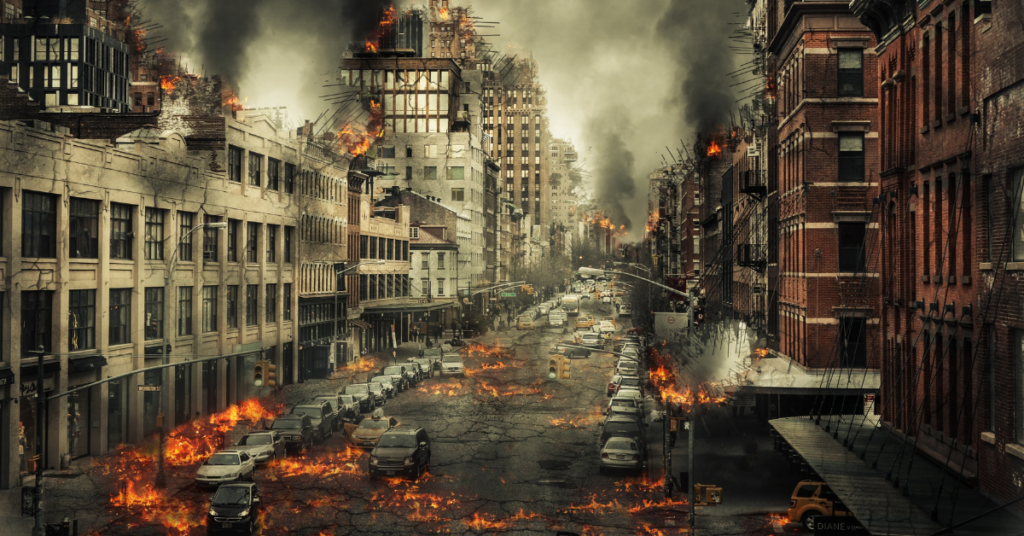
Media often focuses on the most extreme preppers, the ‘doomsday preppers.’ Bunkers filled with military-grade supplies make for more captivating viewing than a pantry stocked with extra canned food. But, it’s crucial to separate the sensationalized narrative from the practicalities of ordinary prepping.
Prepping for the Wrong Reasons
Doomsday scenarios, while fascinating in speculative fiction, are a less-than-practical basis for real-world prepping. The everyday crises—a job loss, a lengthy power outage, an unexpected medical expense—deserve our attention.
Confusion Between Prepping and Hoarding
Another common misinterpretation conflates prepping with hoarding. While both involve accumulating items, they diverge significantly in their motivation and organization. Prepping involves strategic planning, thoughtful selection, and regular use and rotation of stockpiled supplies.
Underestimation of Everyday Threats
People frequently undervalue everyday risks like natural disasters, power outages, and public health emergencies. Prepping helps mitigate these threats, empowering individuals to navigate disruptions with greater self-reliance.
Disaster Preparedness: Prepping for Real-Life Threats
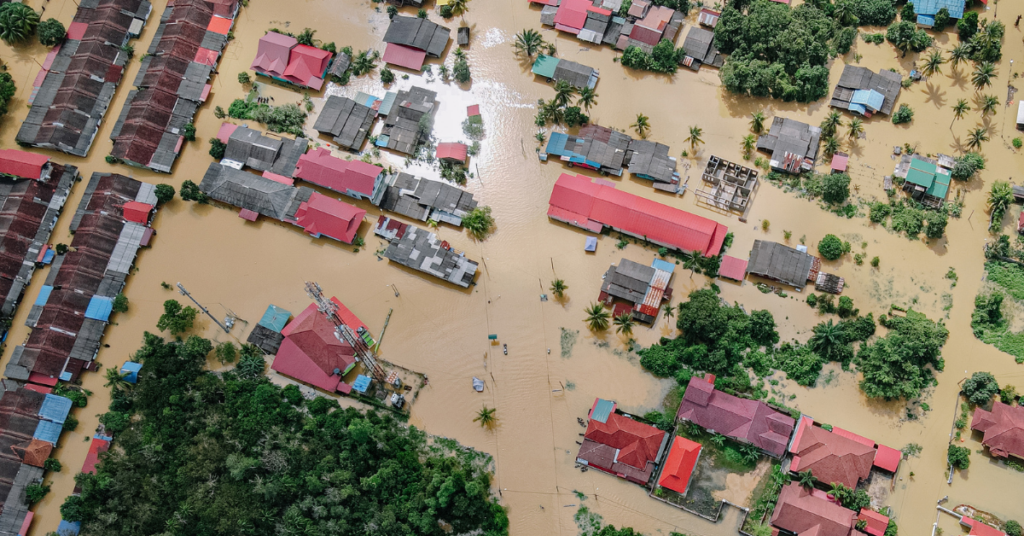
Natural Disasters: Hurricane, Flood, Wildfire, and Earthquake Readiness
Nature’s wrath spares no one. Natural disasters can descend without warning, whether it’s a raging hurricane, a flash flood, a relentless wildfire, or an earth-shaking quake. A well-prepared individual can face these calamities head-on, armed with an evacuation plan, a survival kit, and the mental fortitude fostered by readiness. [1]
Pandemic Preparedness: Lessons from COVID-19
The COVID-19 pandemic demonstrated the importance of personal preparedness. Masks, hand sanitizers, and basic necessities quickly flew off the shelves. Those who had preemptively gathered supplies could navigate the crisis with a relative degree of comfort.

Maintaining a Personal Supply of Food and Water
Stockpiling a moderate food and water supply is not a paranoid reaction but a sensible measure for personal emergencies. Public utilities can fail in emergencies, and supermarkets can be stripped bare. A personal supply can bridge this gap, providing sustenance in times of crisis.
Supply Chain Breakdown and the Importance of Stockpiling Essentials
Modern society relies heavily on a complex, globalized food supply chain. When this chain breaks, the effects ripple outward, potentially leading to shortages. A well-stocked pantry safeguards against this, providing a buffer until the normal supply can be restored.
The American Red Cross says maintaining an emergency food supply that could last for two weeks is enough. [2]
Emergency Preparedness Plan and Communication

A carefully formulated emergency preparedness plan outlines steps to be taken during a crisis, enhancing safety and reducing panic. Additionally, clear communication methods—both with family members and with external entities—can contribute to better decision-making and coordination during emergencies.
Common Prepping Mistakes to Avoid
#1 – Prepping for Unlikely or Extreme Events
An overemphasis on unlikely scenarios often leads to neglecting more realistic threats. While a rogue asteroid strike might be exciting to consider, it’s not as likely as, say, a local flood or a medical emergency—prep for the probable, not the improbable.
#2 -Ignoring Basic Hygiene and Sanitation Needs
Sanitation is an often-overlooked aspect of prepping. Hygiene products, waste disposal solutions, toilet paper, and cleaning supplies are crucial in maintaining health during a crisis situation.
#3 -Overlooking the Importance of Community and Cooperation
Survival is not a solitary endeavor. A community offers a support system, an exchange of skills, and a sense of togetherness during difficult times. Prepping should encompass not just individual survival but the survival of the community as a whole.
#4 -Investing in Excessive Supplies or Gear at the Expense of Practical Knowledge
Owning a top-of-the-line survival kit means little without the necessary skills and the knowledge to use it. Practical skills—like basic first aid, navigation, and food preservation—are invaluable. In the realm of prepping, knowledge truly is power.
#5 -Failing to Rotate and Maintain Food Storage
Proper food storage rotation and maintenance can make the difference between a well-stocked, usable pantry and a repository of expired, unusable goods. Good storage practices ensure that when the need arises, your supplies are safe, nutritious, and palatable.
Reasons Why Prepping Isn’t Pointless
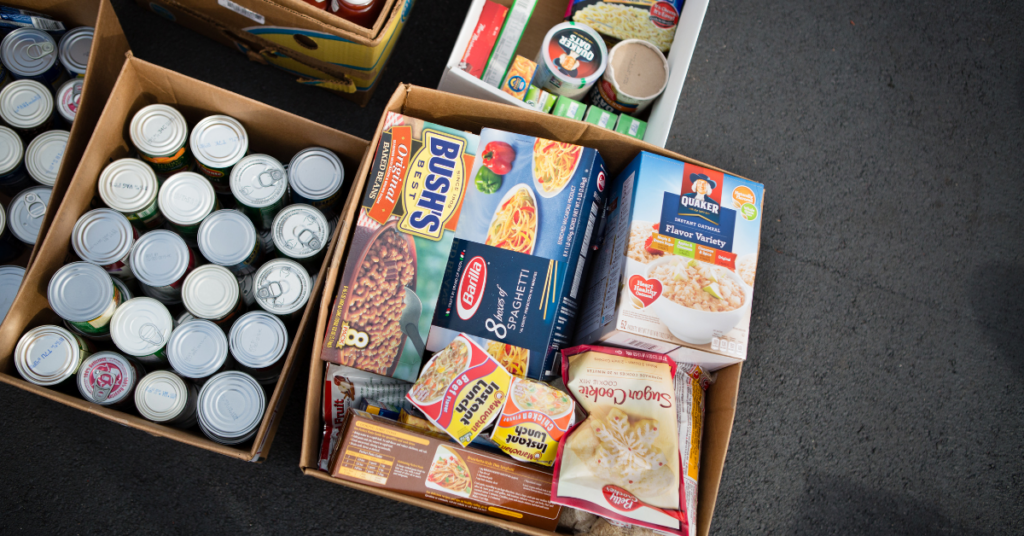
Increased Self-Sufficiency and Independence
Prepping nurtures your common sense of self-sufficiency. By taking charge of your survival, you reduce your reliance on most people and external entities, fostering an independence beneficial in crises and everyday life.
Preparedness for Financial Hardships or Job Loss
Prepping is not just for physical disasters. It’s also a buffer against financial storms. A reserve of food and essentials can ease the pressure during periods of job loss or financial instability.
Building Skills and Knowledge That Can Improve Everyday Life
The skills acquired through prepping, such as first aid, home repair, gardening, or even efficient shopping, are beneficial in everyday life, making you more resourceful and resilient.
Overall Resilience and Ability to Handle Stress
Prepping builds resilience, both physical and mental. By envisioning and preparing for various scenarios, you become better equipped to handle stress, change, and unexpected challenges.
Peace of Mind Knowing You’re Better Equipped to Face Uncertainty
Prepping often instills a sense of control and a calm confidence, knowing that you have plans and resources at your disposal to face whatever uncertainties come your way.
Want To Prep But Not Sure Where To Begin?
Embarking on your prepping journey can feel overwhelming, especially with the multitude of information available.
However, prepping doesn’t have to be complicated.
For a complete list, check out our Prepping List.
Understand Your Needs and Risks
Before buying supplies, take time to understand your specific needs and the risks you will likely face. Do you live in an area prone to natural disasters such as hurricanes or earthquakes? Do you have medical conditions that require special consideration? Understanding your unique situation will help guide your prepping efforts.
Start with the Basics
Begin your prepping journey by focusing on the essentials: food, water, and shelter. Aim to have a two-week food and water supply for each household member. Remember, it’s not just about quantity but also the quality and variety of your food storage to ensure balanced nutrition.
Learn Essential Skills
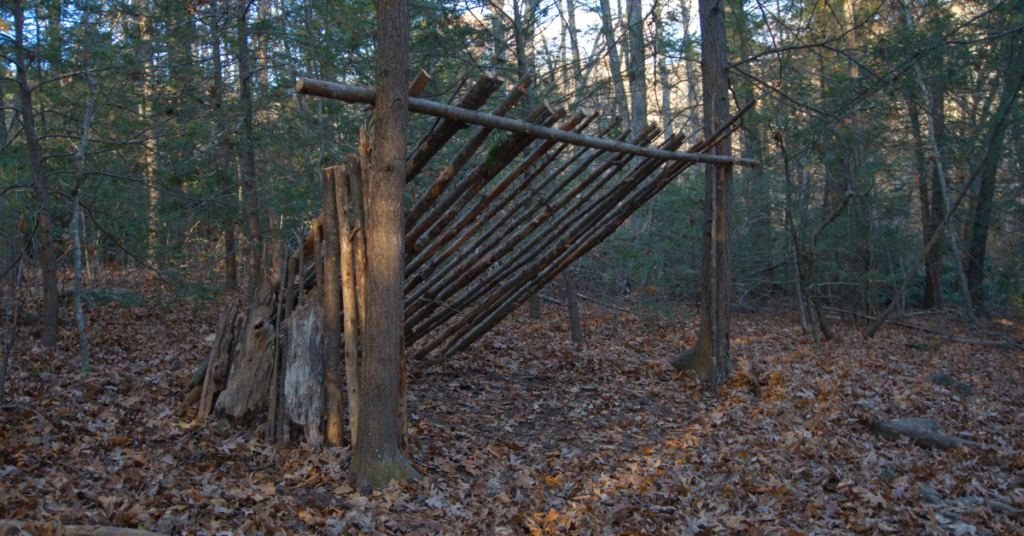
Prepping is not just about the stuff you have but also about the survival skills you possess. Basic first aid, cooking, gardening, and repair skills can be invaluable in a crisis situation.
Consider taking classes or learning online to broaden your skill set.
Create an Emergency Plan

Having a plan in place is crucial. This should include evacuation routes, communication plans, and a list of essential contacts. Make sure all family members are familiar with this plan.
Gradually Expand Your Prepping Efforts
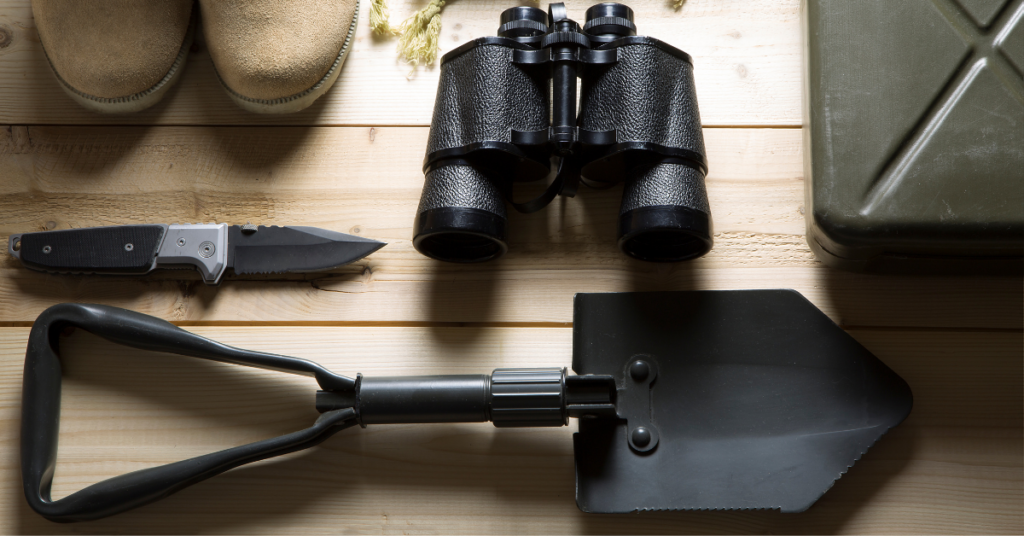
Prepping is a marathon, not a sprint. Once you have the basics covered, you can start to expand your prepping efforts. This could include adding to your food storage, learning new skills, or investing in more specialized equipment.
Connect with Other Preppers
Preppers are a diverse and knowledgeable community. Connecting with other preppers can provide valuable advice, support, and inspiration. Consider joining local prepping groups or online forums.
Remember, the goal of prepping is not to live in fear, but to live with confidence, knowing that you are prepared for whatever life throws your way. So take that first step, and start your prepping journey today.
Prepping on a Budget: A Practical Approach
Prepping doesn’t have to be an expensive endeavor. In fact, with a bit of creativity and strategic planning, you can build a solid emergency preparedness plan even on a tight budget.
Start with the Basics
Focus on the essentials: food, water, and shelter. Buy non-perishable food items in bulk when on sale, and consider learning how to preserve fresh food. Collect water in sturdy, reusable containers and invest in a good water purification system. For shelter, consider multi-purpose items that can be used in various scenarios.
Gradual Prepping
Remember, prepping is a gradual process, so don’t feel pressured to buy everything at once. Instead, set aside a small amount of money from your monthly budget specifically for prepping supplies.
Prepping for Different Family Sizes and Types
Prepping strategies can and should vary depending on the size and type of your family.
Single Individuals and Large Families
For single individuals, the focus might be on mobility and efficiency. At the same time, large families might need to focus more on stockpiling their emergency supplies, and creating detailed emergency plans for all family members.
Pets and Special Needs
Remember to include pet food and supplies in your prepping plan if you have pets. For families with elderly members or individuals with special needs, additional medical supplies and considerations may be necessary. The key is to consider each family member’s specific needs and capabilities in your prepping plans.
Mental and Emotional Aspects of Prepping
Prepping is not just a physical task but a mental and emotional one as well.
Addressing Fear and Anxiety
The process of preparing for potential disasters can bring up feelings of fear and anxiety. It’s essential to address these feelings and find ways to manage stress. This could involve regular discussions with family members about your plans, which can help alleviate the fear of the unknown.
Mindfulness and Relaxation Techniques
Mindfulness and relaxation techniques can also be beneficial. Remember, the goal of prepping is not to live in constant fear but to feel empowered and secure, knowing that you are prepared for whatever may come.
Detailed Guides on How to Prep for Specific Disasters
While it’s essential to have a general preparedness plan, it’s equally crucial to understand how to prepare for specific types of disasters.
Unique Challenges of Each Disaster
Each major disaster scenario—a hurricane, flood, wildfire, earthquake, or pandemic—has unique challenges and requires specific preparations. For example, preparing for a hurricane might involve creating a waterproof storage area for important documents, while prepping for a pandemic might require stockpiling personal protective equipment.
Final Thoughts on the Worth of Prepping
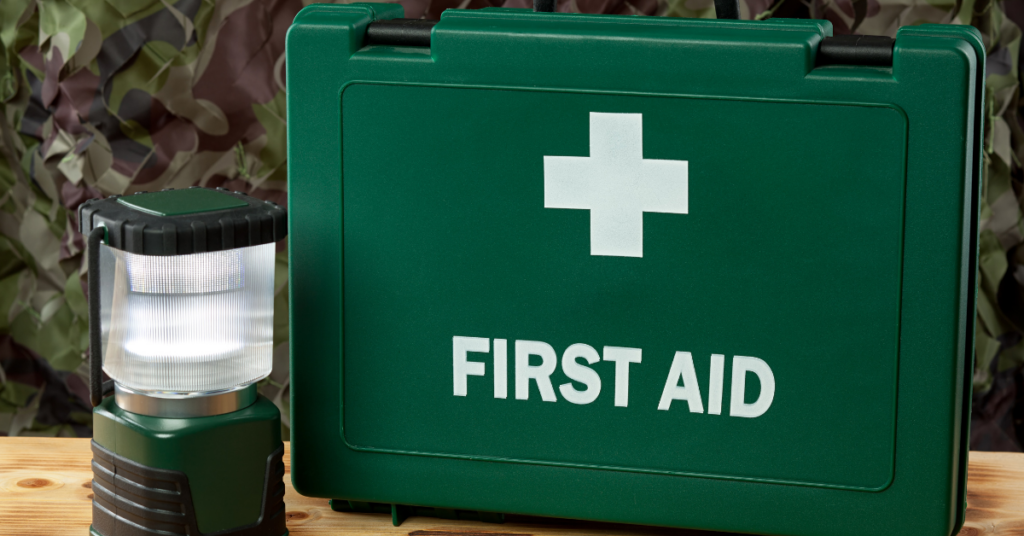
Prepping as a Mindset for Self-Improvement and Personal Growth
Beyond the supplies and the strategies, prepping is a mindset. It’s about becoming a more capable, confident, and self-reliant individual. It’s a journey of personal growth, resilience-building, and continuous learning.[3]
Recognizing That Every Prepper Has Different Needs and Priorities
There’s no one-size-fits-all approach to prepping. Different people will require different strategies with their unique circumstances and vulnerabilities. Recognizing this diversity is vital to effective prepping.
Practical Reasons for Prepping and Survival
Prepping is a practical response to an unpredictable world. From storms to supply chain disruptions to economic collapse, the potential scenarios necessitating prepping are both realistic and numerous.
Accepting That the World Doesn’t Necessarily Have to End for Prepping to Be Useful
Prepping is not just about the end of the world. It’s about any disruption that could affect your daily life, large or small. It’s about fostering a level of preparedness and resilience that serves you in both ordinary and extraordinary times.
Reevaluating and Adapting Your Preparedness Plan as Needed
A solid prepping plan is not static; it evolves with changing circumstances. Regular reevaluation and adaptation keep your prepping relevant, effective, and aligned with your current needs and realities.
Prepping is far from pointless when viewed through the lens of practicality and foresight. So before you dismiss it as the pastime of the paranoid or the obsessed, consider its inherent value. This value extends far beyond a disaster scenario and into personal growth, resilience, and self-reliance. Prepping is one of the smartest decisions you can make.
FAQ; Is Prepping Pointless?
What is prepping?
Prepping is the practice of preparing in advance to handle potential emergencies or disasters. This can include stockpiling food and supplies, learning survival skills, creating emergency plans, and more.
Is prepping pointless?
No, prepping is not pointless. While it’s often misunderstood or misrepresented, prepping is a practical way to ensure you and your family member are prepared for various potential emergencies, from natural disasters to personal crises.
What are some common prepping mistakes?
Some common prepping mistakes include focusing too much on unlikely scenarios, neglecting basic hygiene and sanitation needs, overlooking the importance of community, and failing to maintain and rotate food storage.
How can I start prepping on a budget?
Start with the basics: food, water, and shelter. Buy items in bulk when they’re on sale, collect water in reusable containers, and consider multi-purpose items for shelter. Prepping is gradual, so you don’t need to buy everything at once.
How can I prep for different family sizes and types?
Consider each family member’s specific needs and capabilities in your prepping plans. This could include considering the needs of pets, elderly family members, or individuals with special needs.
What are the mental and emotional aspects of prepping?
Prepping involves managing fear and anxiety, building mental resilience, preparing emotionally for potential challenges, and building supportive community relationships.
What are the mental and emotional aspects of prepping?
Prepping involves managing fear and anxiety, building mental resilience, preparing emotionally for potential challenges, and building supportive community relationships.
How can I prepare for specific disasters?
Each natural disaster also has unique challenges and requires specific preparations. Start by understanding the risks you are most likely to face, then create a detailed plan for each scenario. This could include creating a waterproof storage area for hurricanes or stockpiling personal protective equipment for pandemics.
What if I feel overwhelmed by prepping?
It’s normal to feel overwhelmed when starting your prepping journey. Remember, prepping is a marathon, not a sprint. Start with the basics, learn as you go, and don’t hesitate to seek advice from more experienced preppers.
